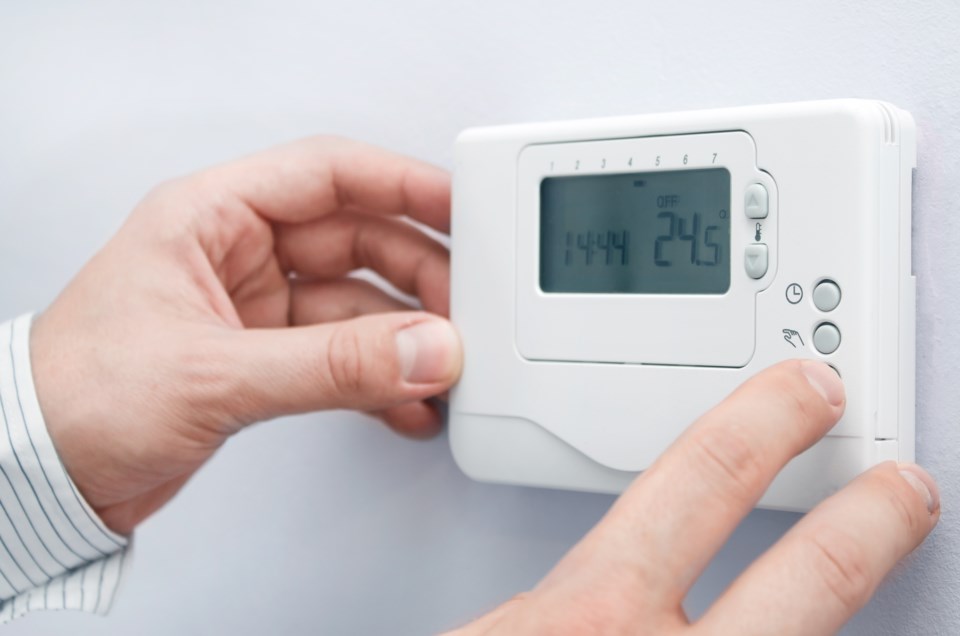One in seven Canadian households have kept their homes at an “unsafe or uncomfortable” temperature due to unaffordable energy bills, a new Statistics Canada study has found.
The survey, carried out between April 21 and June 4, 2023, offered a sobering look at how some Canadians are struggling to keep their homes heated and cooled at a time inflation continues to take a toll on people’s most basic needs.
“About two per cent of Canadian households reported that someone in their home needed medical attention because their home was either too hot or too cold,” concluded StatCan in a summary of its findings.
Two years after a record heat wave led to the deaths of more than 600 British Columbians, in July, the province said it would provide funding to help some of the lowest income residents buy a portable air conditioner. The survey came before the B.C. announcement and did not break down the results by province.
Whatever impact such programs have, the national gap between how Canada's poorest and richest households cool themselves remains significant. According to the StatCan survey, more than a quarter of Canadian households reported not having an air conditioner or some other cooling equipment over the past year.
That percentage spiked to more than a third for households with the lowest incomes, with those living in low-rise and high-rise apartments the most likely to be without AC.
A significant share of Canadian households also struggled to pay their gas, oil or electric bills on time. One in 10 respondents told the national statistics agency they had been late or couldn’t pay their energy bills over the previous year. Another one in 33 Canadian households reported receiving a disconnection, shut off or non-delivery notice on their energy bills over the same period.
Heating and cooling bills impacted family budgets at the most basic level, driving one in seven Canadian households to cut back on necessities like food and medicine for at least one month in the past year. Another eight per cent said they were driven to do so for at least three of the past 12 months, reported StatCan.
The hardest-hit group, revealed the survey — one-parent families. They were three times more likely to cut back on basic needs to pay for an energy bill than couples without children.
Energy efficient heat pumps still the least common
Amid a push to transition away from fossil fuel heating, the most energy efficient home heating technology remains out of reach of most Canadians, found StatCan.
By 2023, seven per cent of Canadian households said they had used a heat pump in the past 12 months. Higher income households were nearly twice as likely to use a heat pump compared to the lowest income group.
The highest income group was also the most likely (56 per cent) to heat their homes with gas or oil, while electric heating warmed the homes of nearly half the surveyed Canadians in the lowest income group. Renters were also more than twice as likely to report heating their homes with electric heat compared to homeowners.
Those gaps were most likely driven by higher income households living in single-detached family homes, where gas was more prevalent, StatCan said.
Survey comes amid federal debate over energy costs
The energy survey comes less than a week after Prime Minister Justin Trudeau announced the federal government would increase the carbon price rebate for rural Canadians and lift the carbon price off oil used for home heating for the next three years.
The decision, which will not affect British Columbians because the province has its own carbon pricing system, caught the B.C. government off-guard.
“We expect better partnership from the federal government,” said Energy Minister Josie Osborne and Environment Minister George Heyman in a joint statement last Thursday.
On Monday, Conservative Leader Pierre Poilievre called on the Liberals to go one step further and exempt all forms of home heating from the carbon price.
"In pausing the tax on home heating oil until after the election, however, you plan to keep the tax on lower-emitting natural gas heat for which bills will be jumping even further in mere weeks as it gets colder," Poilievre wrote in a letter to Trudeau.
A price on carbon pollution is intended to make fossil fuels more expensive as an energy source, to encourage industry and people to find cleaner alternatives.
But Trudeau said last week it had become clear that wasn’t happening when it came to heat pumps, in part because it takes time and money to make the switch. He said giving people more time to make the switch before paying the carbon price was a good choice.
The changes to the carbon pricing regime come as affordability concerns leave the Liberal party flailing in the polls in Atlantic Canada, and one of Trudeau's Atlantic cabinet ministers suggested politics were at play in the decision.
In British Columbia, where the existing carbon pricing regime remains in place, the province says residents can receive a combined rebate of up to $6,000 to switch from fossil fuel heat to an electric heat pump.
With files from the Canadian Press




